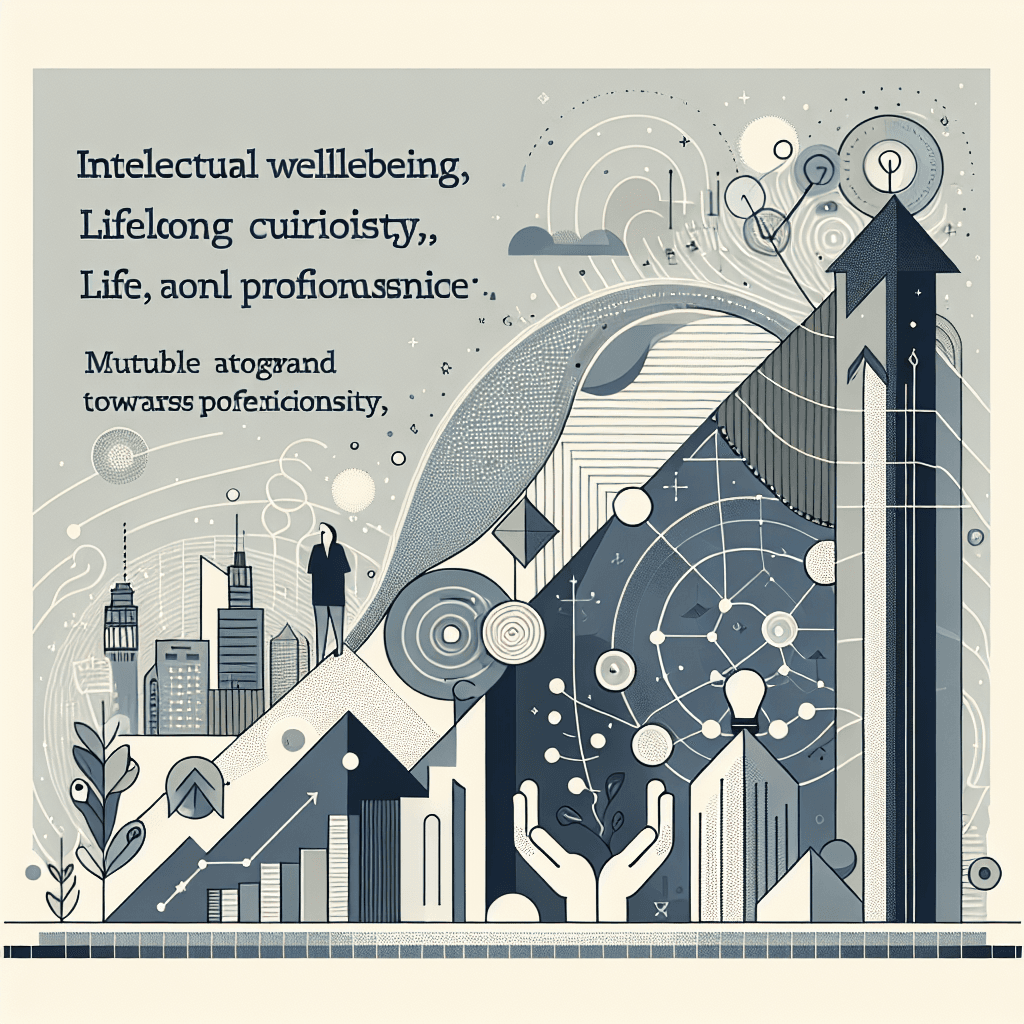Cultivating Intellectual Wellbeing: A Journey of Lifelong Curiosity and Growth

Nurturing Intellectual Wellbeing: Cultivating a Mindful and Engaging Life
In the complex landscape of personal growth, intellectual wellbeing emerges as a critical yet often overlooked dimension of our overall health. Through years of research and personal exploration, I've discovered that true mental vitality goes far beyond traditional academic pursuits—it's about creating a rich, dynamic inner world that continuously challenges and expands our understanding.
The Foundations of Intellectual Engagement
Intellectual wellbeing isn't just about accumulating knowledge; it's about developing a passionate, curious approach to life. It means cultivating a mindset that embraces learning as a lifelong journey, not a destination. From my own experience, this approach transforms how we interact with the world around us.
Strategies for Continuous Mental Growth
-
Embrace Curiosity
- Read widely across different disciplines
- Ask questions that challenge your existing perspectives
- Engage in meaningful conversations with diverse thinkers
Practice Active Learning Passive consumption of information is the enemy of true intellectual growth. Active learning techniques like critical reflection, discussion, and practical application help transform information into genuine understanding.
Mindfulness and Intellectual Development
Mindfulness plays a crucial role in intellectual wellbeing. By cultivating present-moment awareness, we create mental space for deeper reflection and more profound insights. Meditation, journaling, and deliberate contemplation are powerful tools for enhancing cognitive flexibility.
Personal Transformation Techniques
- Morning meditation
- Reflective journaling
- Regular learning challenges
- Interdisciplinary exploration
Breaking Intellectual Comfort Zones
One of the most transformative experiences in my intellectual journey has been deliberately stepping outside my comfort zone. Neuroplasticity research demonstrates that challenging our brain with novel experiences creates new neural pathways, enhancing cognitive resilience.
Practical Ways to Challenge Your Mind
- Learn a new language
- Take online courses in unfamiliar subjects
- Attend lectures or workshops outside your expertise
- Engage in creative problem-solving activities
Technology and Intellectual Growth
Modern technology offers unprecedented opportunities for intellectual development. Online learning platforms and digital resources provide access to world-class education and diverse perspectives, making continuous learning more accessible than ever.
Digital Learning Strategies
- Curate a personalized learning playlist
- Follow thought leaders across various domains
- Participate in online discussion forums
- Utilize microlearning techniques
Balancing Intellectual and Emotional Intelligence
True intellectual wellbeing isn't just about cognitive skills—it's about integrating emotional intelligence. Understanding our emotional landscape allows for more nuanced, empathetic thinking and deeper interpersonal connections.
Creating a Sustainable Intellectual Lifestyle
The key is consistency and intentionality. Intellectual growth isn't about sporadic bursts of learning but about creating sustainable habits that nurture continuous development.
Daily Intellectual Wellness Routine
- 30 minutes of focused reading
- Engage in reflective practice
- Seek diverse perspectives
- Maintain a growth mindset
Conclusion: The Lifelong Learning Journey
Intellectual wellbeing is a dynamic, ever-evolving process of personal transformation. By approaching life with curiosity, openness, and intentional learning, we unlock our potential for continuous growth, adaptability, and profound personal fulfillment.
Remember, the most powerful intellectual asset you possess is your willingness to remain perpetually curious and open to new possibilities.


